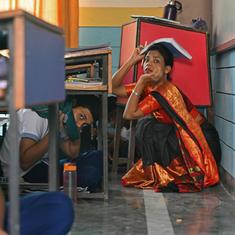One in five Indian children aged under five is extremely underweight, shows Global Hunger Index
The report ranked India 103 out of 119 countries.

As many as 21% of Indian children under the age of five suffer from acute under-nutrition, according to the 2018 Global Hunger Index. The report, published on Thursday, categorised hunger levels in India as “serious”.
This implies that at least one in five children under the age of five is “wasted”, which means the children have extremely low weight for their height. The report shows that the only country with worse child wasting is war-torn South Sudan.
The report ranked India 103 out of 119 countries. India has dropped three places from last year, although the report said results are not accurately comparable year to year. It instead provided a few reference years for comparable data – this year’s index reflect data from 2013 to 2017.
The report is released annually by Irish aid agency Concern Worldwide and German charity Welthungerhlife.
Hungers levels are calculated using four indicators – undernourishment, which is the share of the population that is undernourished, child wasting, which reflects acute under-nutrition, child stunting (low height for age) which reflects chronic under-nutrition; and child mortality. The last three indicators are the share of children under five years of age.
India has shown improvement in three of the indicators over the comparable reference years. However, child wasting has worsened – it stood at 17.1% in 2000, increased to 20% in 2005, and 21% in 2018. South Sudan’s child wasting prevalence is at 28%.
The report said that wasting rates are highest for infants aged 0 to 5 months in South Asia and that is associated with a low maternal body mass index, suggesting that the nutritional status of the mother during pregnancy should be given greater focus.
“In South Asia, maternal BMI and access to improved water and sanitation are more closely associated with rates of child wasting than household wealth, suggesting that a reduction in poverty alone may not be sufficient to correct the problem,” the report said.








